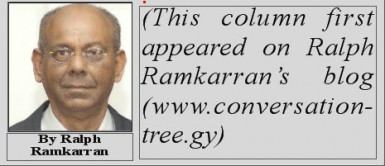There are growing concerns within the Indian Guyanese community that the government has embarked on large-scale discrimination against them. This is being fuelled by politically driven accusations by the PPP using the same emotive language used by the PNC/PNCR in the 1990s – ‘ethnic cleansing.’ I do not accept that there is such discrimination but the growing perception is a negative phenomenon so early in the life of the government. It should not be dismissed because once such perceptions take hold, they are very difficult to overcome.

With the advent of the APNU+AFC government, many Indian Guyanese have become fearful of discrimination and, in particular, fearful of the loss of promotional or job opportunities, loss of access which is vital for overcoming bureaucratic inertia or manoeuvering around bottlenecks in the conduct of business. The fear is being generated by the reality of Indians losing their jobs, notwithstanding that most of those are political appointments and are

